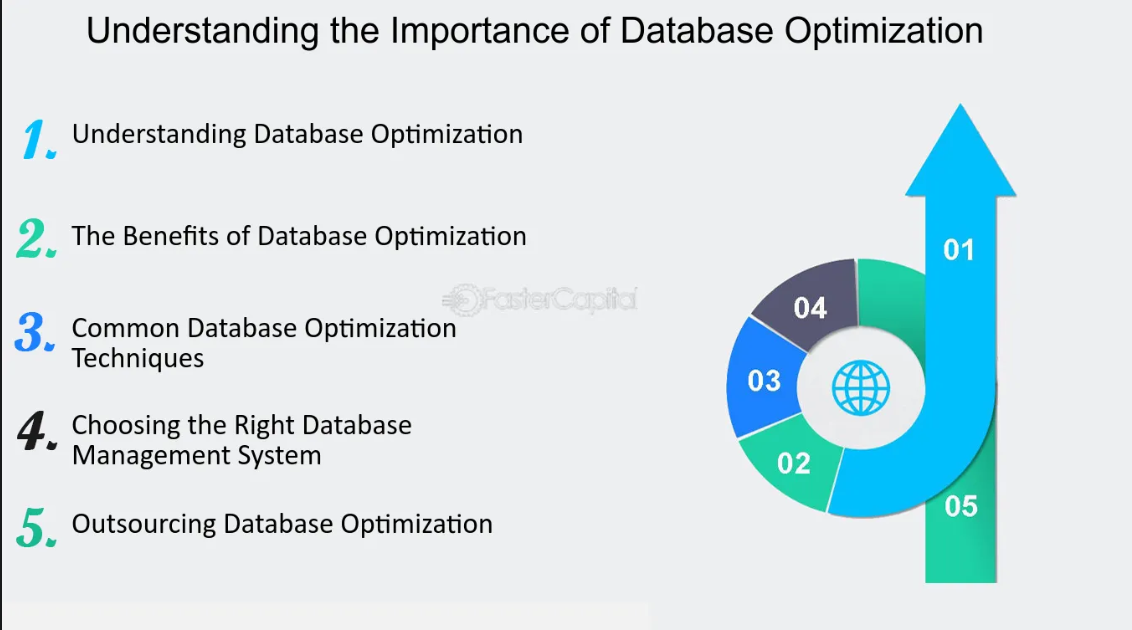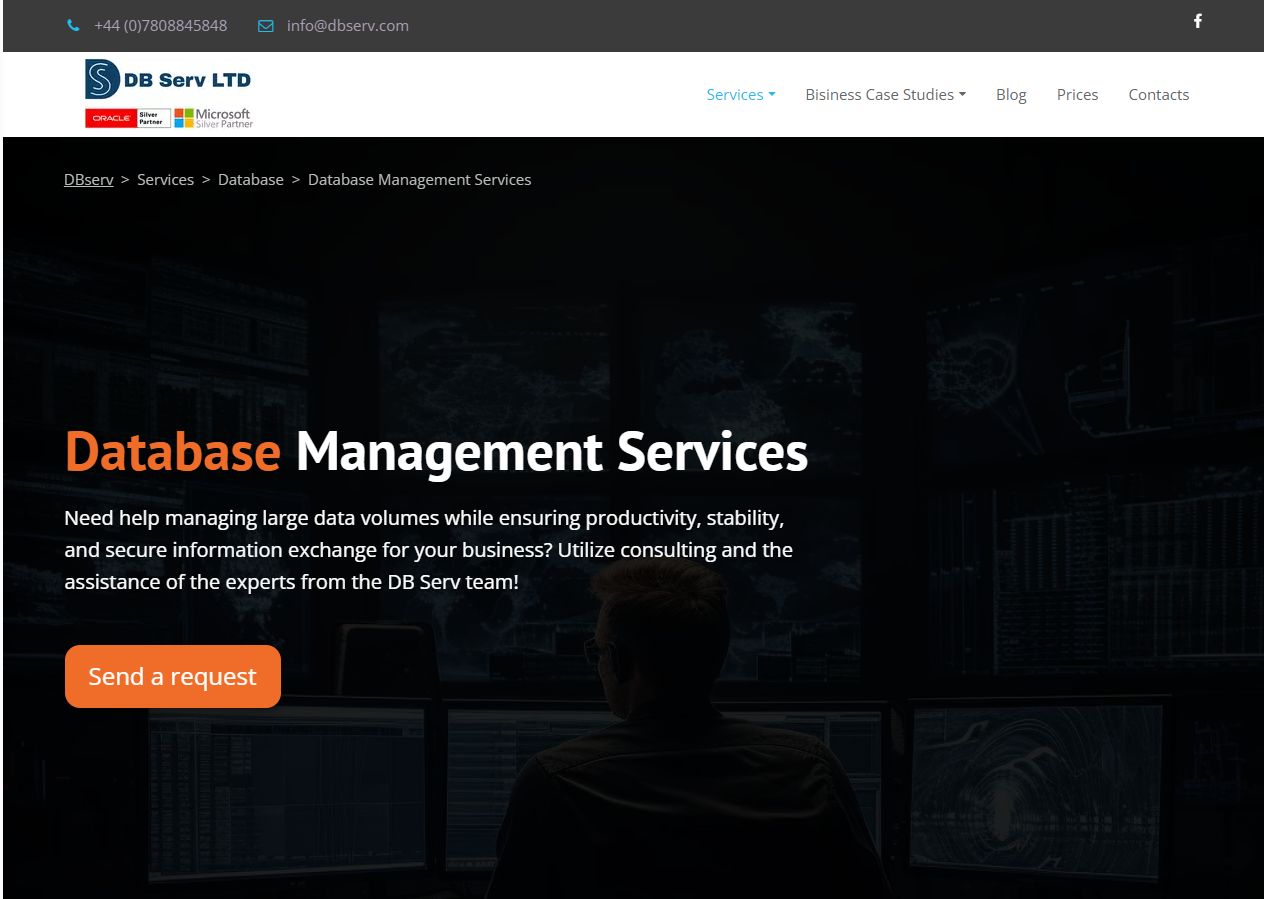Optimizing Website Database Performance: Exploring Database Administration Services and Remote DBA Solutions
The #1 way to optimize website database performance is through indexing. Indexing creates a data structure that significantly enhances the speed of data retrieval operations on a database table
In cutting-edge statistics-driven international, where corporations depend closely on the efficiency and reliability of their databases, optimizing database overall performance is paramount. A nicely maintained database ensures smooth operations, complements productiveness, and enables informed choice-making. Database management offerings and remote DBA solutions play a crucial position in conducting and maintaining final typical performance. These offerings embody several obligations, from habitual maintenance to advanced standard performance tuning, all aimed towards making sure that databases carry out at their height efficiency. In this article, we will discover the significance and advantages of database management offerings and remote DBA answers, dropping moderate on how they make contributions to the seamless functioning of corporations in the digital age.
Click on each corresponding link to jump ahead:
- Importance of Database Optimization
- Indexing for Performance Enhancement
- Understanding Database Administration Services
- Squarespace VS WordPress
- Exploring Remote DBA Solutions
- Conclusion
For more information on Database Optimization, Contact Us.
1) Importance of Database Optimization

Source: FasterCapital
The importance of database optimization cannot be overstated as it is a key factor in enhancing the overall performance of a website. Here are two main points to consider:
Techniques for Optimization: Database optimization involves a variety of techniques such as indexing, query optimization, caching, and database schema design. Each of these techniques plays a unique role in enhancing the performance of the database. For instance, indexing improves the speed of data retrieval operations on a database table, while query optimization ensures that the database executes queries in the most efficient manner possible. Caching can significantly reduce the database load by storing frequently accessed data in a temporary storage area. Lastly, a well-designed database schema ensures data integrity and optimizes the storage of data.
Scalability for Growth: As businesses and online platforms expand, the amount of data they handle also increases. In such scenarios, having a scalable database becomes crucial. A scalable database can handle an increasing amount of work efficiently. It ensures that the website can handle the growing data and user traffic, thereby maintaining smooth user experiences. There are different approaches to scaling a database, such as vertical scaling (adding more resources to a single server) and horizontal scaling (adding more servers to the database system). The choice between these approaches depends on the specific needs and resources of the business.
2) Indexing for Performance Enhancement
Improve SQL Performance w/ Indexes
Indexing is indeed a powerful strategy for enhancing database performance. Here are two key points to consider:
Efficiency of Data Retrieval: Indexing works by creating a data structure that significantly improves the speed of data retrieval operations on a database table. This is similar to how a book index works - instead of reading the entire book to find a specific topic, you can refer to the index to find the pages where the topic is discussed. In the context of databases, an index allows the database management system to find and retrieve data much more quickly, which can greatly enhance the performance of the database.
Improved Data Management and Website Performance: Efficient data management is another major benefit of indexing. By making data retrieval more efficient, indexing reduces the workload on the database. This leads to less strain on the server resources, which can result in improved website performance. In other words, an optimized database can handle more traffic and process queries faster, leading to a smoother and more responsive user experience on the website.
3) Understanding Database Administration Services
Database administration services encompass a range of tasks aimed at managing, securing, and optimizing databases. These services are typically provided by skilled professionals who possess expertise in database administration service technologies and best practices. Key responsibilities of database administrators include:
Performance Tuning: Database directors reveal database overall performance metrics and nice-track configurations to ensure gold standard velocity and performance. They perceive and deal with bottlenecks, optimize queries, and enforce indexing techniques to decorate overall performance.
Backup and Recovery: Data loss can be catastrophic for any corporation. Database directors put into effect sturdy backup and restoration techniques to guard against record loss because of hardware disasters, human errors, or screw-ups. Regular backups, coupled with green recuperation methods, assist minimize downtime and ensure statistics integrity.
Security Management: Protecting sensitive information from unauthorized right of entry is a top priority for groups. Database directors enforce security measures which include consumer authentication, getting the right of entry to control, encryption, and auditing to protect information in opposition to protection threats and compliance breaches.
Capacity Planning: As record volumes develop, database administrators anticipate future resource requirements and plan for scalability for this reason. They screen resource usage traits, forecast increases, and make recommendations for hardware upgrades or optimization techniques to guide evolving commercial enterprise needs.
4) Squarespace VS WordPress

Source: WpBeginner
When it comes to optimizing website database performance, the choice between WordPress and Squarespace can have significant implications.
WordPress: As an open-source platform, WordPress offers a high degree of customization and flexibility, which can be beneficial for database performance. It allows for various optimization techniques such as indexing, query optimization, caching, and database schema design. However, this flexibility can come at the cost of a steeper learning curve and the need for regular maintenance and updates. Moreover, as your site grows, you may need to invest in additional database administration services or remote DBA solutions to manage and optimize your database effectively.
Squarespace: On the other hand, Squarespace is a closed system that offers ease of use and simplicity. It handles a lot of the technical aspects, including database management, behind the scenes. This can make it a good choice for beginners or those who want a hands-off approach to database management. However, this simplicity comes at the cost of flexibility. Squarespace doesn’t offer the same level of control over database performance optimization as WordPress does.
In conclusion, both WordPress and Squarespace have their pros and cons when it comes to database performance and management. Your choice between the two will depend on your specific needs, technical expertise, and the resources you have available for database administration and optimization. Regardless of the platform you choose, remember that regular database optimization is key to maintaining smooth user experiences and high website performance.
5) Exploring Remote DBA Solutions

Source: DB Serv
Remote Database Administration (DBA) answers provide a cost-powerful alternative to traditional in-residence DBA teams. With remote DBA services, organizations can get entry-level know-how from seasoned experts without the overhead prices associated with hiring a complete group of workers. Here are a few key elements of remote DBA answers:
24/7 Monitoring and Support: Remote DBA vendors provide round-the-clock tracking and assist services, ensuring proactive detection and resolution of issues. This non-stop monitoring helps decrease downtime and ensures the best performance even at some stage in non-commercial enterprise hours.
Scalability and Flexibility: Remote DBA answers are tremendously scalable, permitting companies to modify sources based totally on fluctuating demand. Whether it's scaling up during peak periods or downsizing during off-peak times, remote database services offer flexibility to align with business requirements.
Access to Specialized Expertise: Remote DBA carriers appoint a crew of experienced experts with diverse skill sets. This ensures get right of entry to to specialized expertise in various database technologies, enabling well-timed resolution of complex problems and implementation of great practices.
Cost Efficiency: By outsourcing database management to remote DBA carriers, corporations can significantly reduce costs related to recruiting, schooling, and preserving in-residence DBA teams. Remote DBA offerings offer predictable pricing models, putting off surprising charges and allowing higher budget allocation.
6) Conclusion
Optimizing database common overall performance is crucial for businesses searching to leverage their data belongings efficaciously. Database management offerings and remote DBA answers provide a comprehensive guide to dealing with, securing, and optimizing databases to satisfy the evolving goals of present-day companies. Whether via in-residence know-how or outsourcing to remote carriers, investing in database administration is a strategic selection that can power efficiency, reliability, and in the long run, commercial enterprise success.
If you have any other inquiries, Contact Profitworks.
